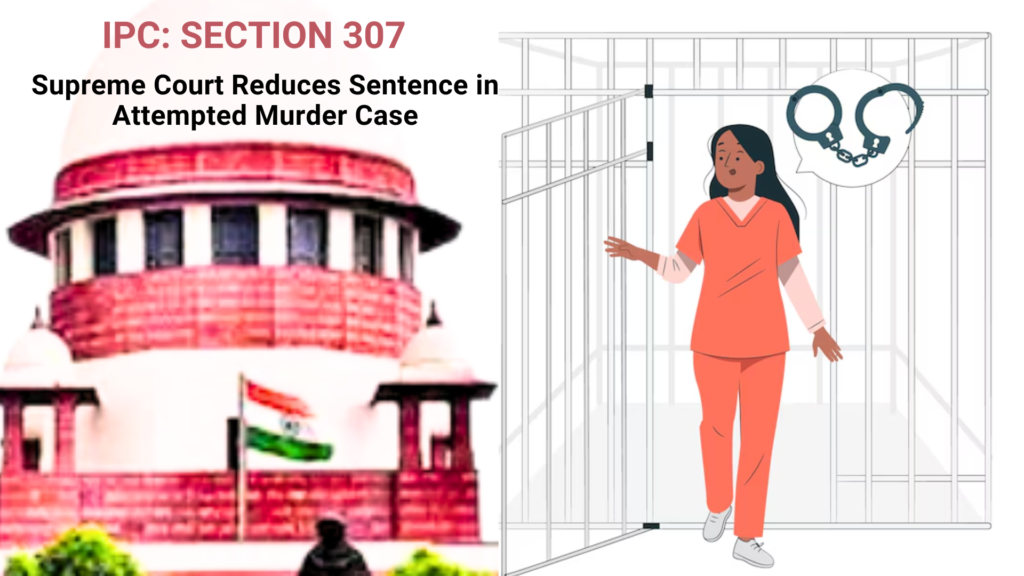Supreme Court Reduces Sentence in Attempt to Murder Case

Supreme Court Reduces Sentence in Attempted Murder Case
In a significant judgment, the Supreme Court of India has provided clarity on sentencing in attempt to murder cases under Section 307 of the Indian Penal Code (IPC). The case, Amit Rana @ Koka & Anr. vs. State of Haryana, addressed the question of whether a convict under Section 307 can be sentenced to imprisonment beyond ten years when life imprisonment is not imposed.
Background of the Case
The appellants, Amit Rana @ Koka and another, were convicted by the trial court under Section 307 read with Section 34 IPC, which was upheld by the High Court. They were sentenced to 14 years of rigorous imprisonment and fined Rs. 1,50,000 each. The incident involved a grievous gunshot injury to the complainant, Mangtu Ram, resulting in paralysis due to a spinal injury. The appellants challenged the time period of the sentence, arguing that it exceeded the statutory limits prescribed under Section 307 IPC.
Key Points of the Judgment:
- Sentence Reduction: The Court reduced the appellants’ sentence from 14 years to 10 years of rigorous imprisonment, ruling that sentences exceeding 10 years (but less than life imprisonment) are impermissible under Section 307.
- Interpretation of Section 307: The Court analyzed the structure of Section 307, which provides for three types of sentences
- Up to 10 years imprisonment and fine for simple attempt to murder
- Life imprisonment or up to 10 years if hurt is caused
- Death penalty if the offender is already serving life imprisonment and causes hurt.
Conclusion:
The ruling rendered by the Supreme Court sets a crucial precedent for matters involving Section 307 IPC in the future. It clarifies the boundaries of sentencing and reinforces the necessity of proportionality in the administration of justice. The ruling not only corrects the specific miscarriage of justice in this case but also guides lower courts in sentencing decisions for similar offenses in the future.
The Judgement Quoted:
“4. A perusal of Section 307, IPC, would make it clear that it really imbibes the true spirit of the maxim ‘culpae poena per esto’ – means ‘let the punishment be proportionate to the offence; let the punishment fit the crime.’ It itself prescribes three types of sentences imposable on a convict thereunder. If it is an attempt to murder simpliciter, the offence is punishable maximum with by a term of imprisonment of either description upto ten years and fine. The last part of Section 307 prescribes death sentence as the only punishment when the offender during the commission of the crime is under the sentence of imprisonment for life and hurt is caused to the victim.”
“9. We have taken note of the fact that as a consequence of the attempt to do away with the life of the complainant, he had suffered spine injury and became paralysed in terms of the second part of the Section 307, IPC, the appellants are to be given the maximum corporeal sentence imposable under the first part of Section 307, IPC. Accordingly, the imposition of rigorous imprisonment for 14 years each to the appellants is converted to rigorous imprisonment for a period of 10 years. The order of sentence with respect to fine is kept intact. The appeal is thus allowed in part and the impugned judgment of the High Court and the judgment of the trial Court in S.T. No.281/2016 qua the appellants stands modified as above.”
To enhance your legal career as a corporate lawyer or to setup your own private practice you must acquire practical legal skills, Inculcatelaw offers comprehensive courses to enhance your legal knowledge. Follow us on Linkedin and Instagram
Submit your blog on submissions.inculcatelaw@gmail.com.
Click here to Read the Judgment/Order